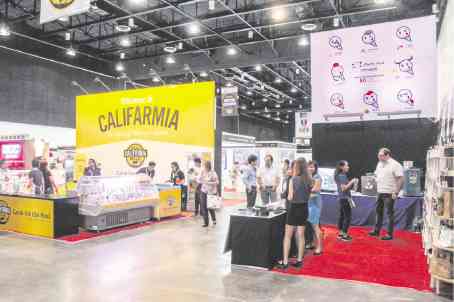To truly elevate the Philippines’ coffee industry, all we need, according to one coffee farmer advocate, is love.
“We are helping our coffee farmers go up the value chain, [because] we want them to pass on the legacy of coffee to the next generation. And for that to happen, the passion [for their work] must be ignited— by helping them make money from coffee,” said Vie Reyes, coffee farmer advocate and director of the Philippine Coffee Alliance. “If there’s no passion or romance in their work, the farmers won’t be motivated—it’s so hard to work in the fields, especially if they don’t earn enough. So the love must be there—not just for coffee, but also for country, the family, and the environment. That is what coffee should be all about.”
Reyes was one of the guests of the first Philippine Restaurant, Cafe and Bar Expo (Philresca), which recently brought together around 100 trade exhibitors from at least 20 countries at the World Trade Center in Pasay City, all with the common goal of promoting coffee—arguably one the Philippines’ most popular beverages.
The expo was organized by the Phil. Asia Conferences and Exhibitors Inc., which holds the local license for competitions sanctioned by World Coffee Events—the Philippine National Latte Art and Barista Championships.
“More and more cafes are opening up, especially independent ones. The specialty coffee industry is growing, and people are starting to appreciate it more—that’s what we wanted to highlight this in the expo,” said May Juan, president of Phil. Asia Conferences and Exhibitions Inc.
“We also saw a need for this niche segment of the [food and beverage] industry. Most of the [trade] exhibitions cater to food. Under food expos, majority of those who visit are from the hospitality, hotel and catering businesses—so you get all sorts of exhibitors on the floor. That’s why we put up this expo which targets the horizontal segment of the industry,” Juan added.
Aside from catering to businesses, the three-day expo also showcased educational seminars for the general public, such as “The Cupping Exchange,” which highlighted the best local coffee beans and their farmers; and the “Philresca Sessions,” which tackled business strategies, latest products and trends, and other essential knowledge on the industry.
Ultimately, the goal of Philresca—which could become the country’s flagship coffee trade event—is to help the industry grow and reach that point wherein local coffee producers can confidently compete globally.
“Our coffee industry is really growing, [but] we are not yet there internationally,” said Reyes. “But I am confident that we can be at par with other international coffee brands. Why? Because we have so many skilled [coffee] workers here. Our coffee beans are very good. We just need to get our act together.”
